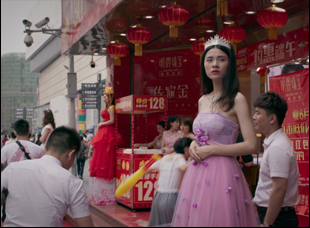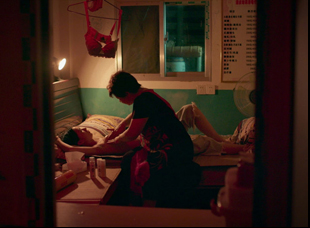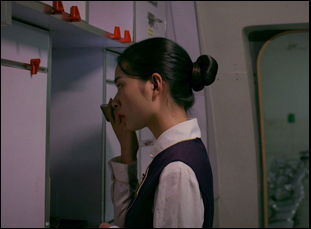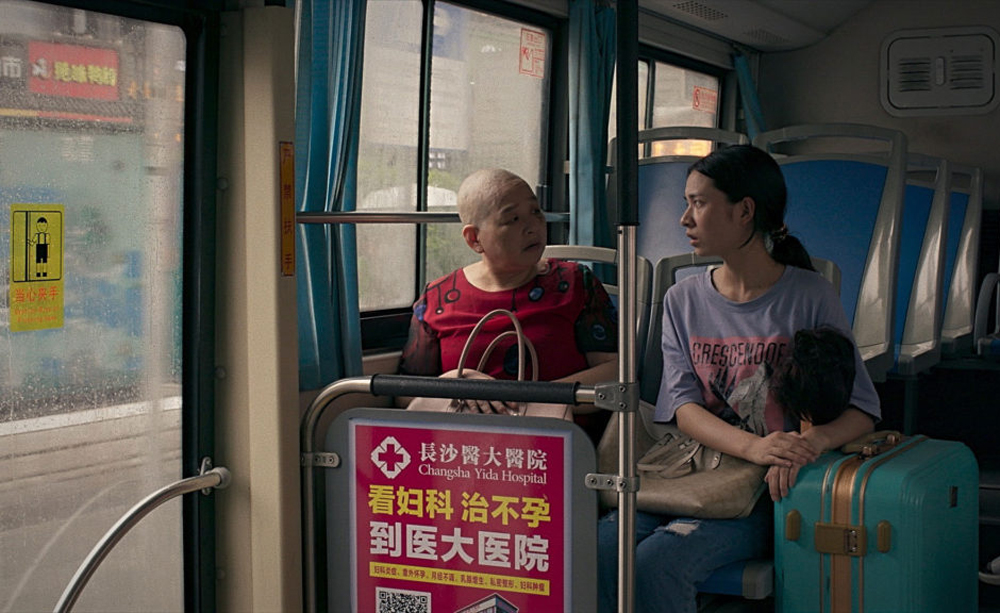At this point, it might be difficult to discern fiction from reality in the films of Huang Ji and Ryuji Otsuka, especially when the latter has started to look a lot more than the former in their native China. While Otsuka usually handles the films’ cinematography and editing, Huang draws on a deep well of personal history as a director, with the tone for their collaborations set with 2012’s “Egg and Stone,” which unfolded in Huang’s home town, detailing the coming of age of a teenager (Honggui Yao) who is left in the care of her aunt and uncle for much of her adolescence as her parents pursue work in the city, confronting both the demands of staying afloat in modern China while still being beholden to some of the most unfortunate parts of its history when a daughter is considered less valuable to the society than a son, making her easier to neglect. Their 2017 follow-up, “The Foolish Bird” wasn’t explicitly a sequel, but in casting the same lead in Honggui, it’s not difficult to imagine the same cultural attitudes leading its central teenager into pursue a life of petty crime and unsure how to proceed when she believes a major one has committed against her in a place where she feels she might not be taken seriously.
Huang hasn’t been coy about acknowledging the autobiographical details she’s laced throughout the films so far, and her real-life parents show up in “Stonewalling,” but rather than look to her experience once more, she and Otsuka simply capture the radically changing world around them for the fascinating drama, which places Honggui in the center of the action again. Filmed amidst the COVID pandemic where an already unforgiving economy only seems that much harsher, the film concerns Lynn, an aspiring flight attendant who is getting by with odd jobs in the unreliable gig economy when an unwanted pregnancy complicates her life considerably, though not in any predictable ways. Seeing as many professional opportunities open up as a result of being an expectant mothers as others that close, Lynn provides entrée for audiences around the world to take in a panoramic view of her home country where people are increasingly having to envision themselves as commodities, with its lead feeling the pressure to promote herself well before a potential baby makes her more attractive to certain parties.
If “Stonewalling” feels so vital, it is surely due in no small part to the filmmakers’ commitment to letting the production occur in real time, filming over the course of 10 months with a very limited crew that was able to traverse China to explore various facets of the economy and chart Lynn’s navigation of both a pregnancy and her professional life by allowing Honggui to live with the part over all that time. After premiering last fall at the Venice Film Festival, the film is arriving stateside, complete with a retrospective of Huang and Otsuka’s previous two films at the Film Society of Lincoln Center for its initial run this week in New York, and with the help of a translator, the two graciously spoke about how they set up such thematically rich and organically evolving shoots, the ongoing inspiration of Honggui and how the films have become family affairs.

Huang Ji: My daughter asked me a question: Why did you give birth to me? And I didn’t know how to answer because I know I couldn’t answer randomly. It was a serious question, so we decided to answer her through making a film and this is a film answering her question. But that was 2019, so before COVID.
Ryuji Otsuka: Yeah, we started in 2019 and then the pandemic was totally unexpected. At the beginning, the ending of the film was completely different from what you see now because of pandemic. We changed all of it.
The past films have been intensely personal for Huang Ji, and I wondered whether this was a different way to process something when it obviously started from a personal place, but it wasn’t as directly connected to you?
Huang Ji: Yes, it’s different from how I conceived films in the past. This time it’s much less mirroring my own experience, but more based on the university experience of my actress Honggui Yao. We interviewed her and other university students and we asked them the same questions [of] how do you use your money and how much money do you have? Where do you spend your money on and how do you earn your money?
In the beginning, because we were still thinking about my daughter’s question, our idea was to design a character that who a university student who is not too suitable to give birth to a child. Then we decided to film the 10 months of pregnancy of this student and how does she spend [this] time. She would go take different kind of jobs and meet different people and following her, we managed to capture the changes in her life and the changes in the society.

Ryuji Otsuka: Yeah, it is very long, but we didn’t know how [else] to continue. We’re very curious about her life, so every day we would closely observe Honggui and then we would notice all the changes in this process. Then after we started to think about the story. And Honggui herself is also actively thinking about different kinds of jobs that she could partake.
Huang Ji: Our team and [my] parents and Honggui, we were all living together in the clinic. And Honggui as a person is very difficult to be influenced or changed, so we all were changed by her.
You’ve had experience filming in public, but is it difficult to develop a camera style that can be so strongly composed but allow such unpredictable life to happen inside of it?
Ryuji Otsuka: Because I am the cinematographer from the very beginning, I decided to use a static camera and also to maintain a distance from Honggui and also include the context and background of the space she’s in and we decided to keep this style for 10 months.
Huang Ji: [When starting to write] my screenplay, the temperament of the character was a bit different from who Honggui is, and we wanted her to act according to the screenplay, but it didn’t feel right, so we put down the screenplay and rewrite a story that tailored to Honggui’s own personality. And our method from the very beginning since “The Egg and the Stone” was whenever there’s unexpected situation happening, we would capture it and include it in our film. This is one of the biggest sources of pleasure of filmmaking.

Huang Ji: Yeah, all the three films in the trilogy were acted by Honggui, the same actress. In the first one, she was only 14 years old. 17 years old in the second one, and now in this film, she’s 22, so if we see all three films together, we can see how she has grown in the past 10 years and we can also see how China has changed in the past 10 years.
Ryuji Otsuka: We’re very curious also how audiences feel when they see all the three films together.
When you made this for your own daughter, has she had a chance to see “Stonewalling” yet?
Huang Ji: She saw it. And every time [we make a film], we will listen to her opinions during the process of editing and in a “The Foolish Bird”, she played a small role, so she was with us during the shooting [of “Stonewalling”], and she understood how difficult it is for a woman to be pregnant and decide to give birth.
“Stonewalling” opens on March 10th in New York at the Francesca Beale Theater of Film Society at Lincoln Center, which will be screening “Egg and Stone” on March 11th at 8 pm and “The Foolish Bird” at 8 pm on March 12th with Ji and Otsuka in person. It will open in Los Angeles at the Laemmle Glendale on March 31st.




